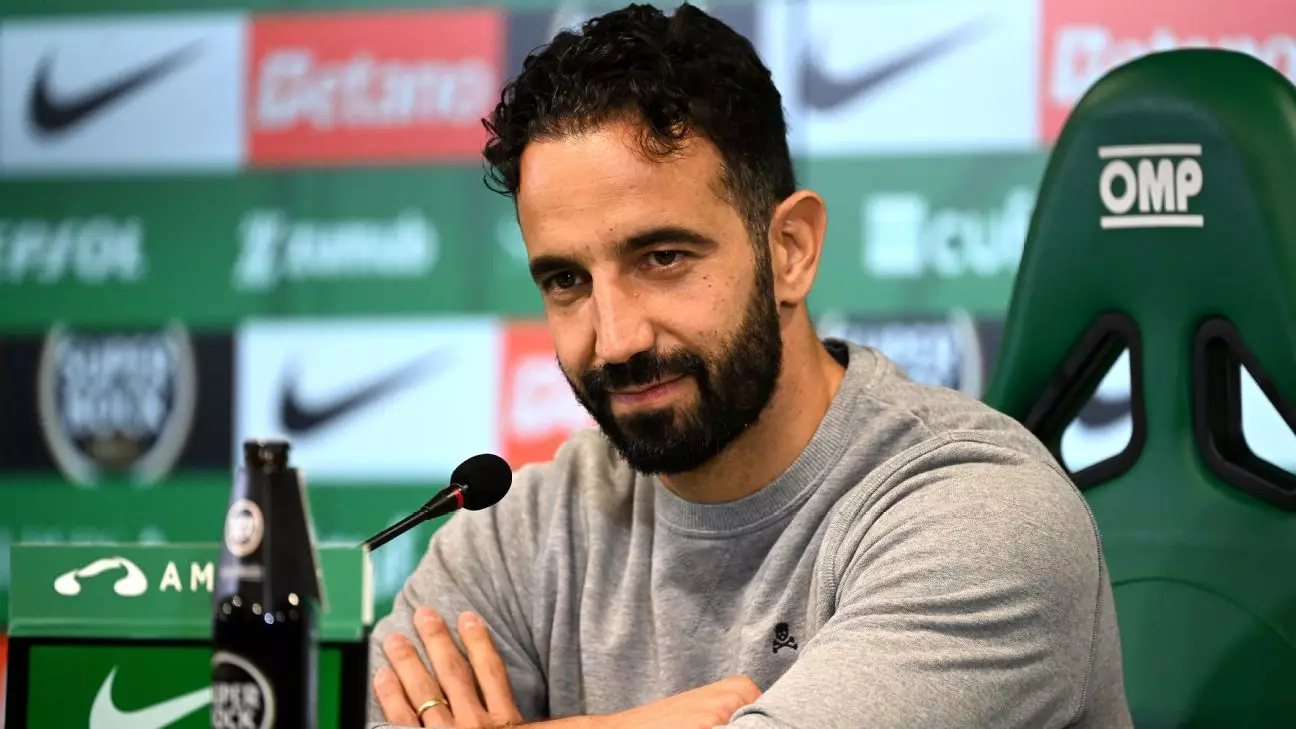As Manchester United embarks on a new chapter with Rúben Amorim at the helm, significant shifts in player management and strategy are on the horizon. Amorim, who has recently signed a two-and-a-half-year contract to lead the team, brings fresh ideas to Old Trafford and will officially commence his duties on November 11. Amid the transition, the club’s approach to player contracts, particularly those nearing expiration, will be crucial in shaping their future.
Evaluating Contract Decisions
The impending contract renewals for several key players, including Victor Lindelöf and Christian Eriksen, present a complex challenge for Amorim. Reports indicate that Manchester United intends to engage Amorim in discussions before finalizing decisions regarding these contracts. This collaborative method signifies a strategic shift from previous management styles, emphasizing the alignment of coaching philosophy with player retention. Both Lindelöf and Eriksen’s contracts expire at the end of the current season, raising questions about their roles in Amorim’s tactical framework.
Unlike his predecessor Erik ten Hag, Amorim’s authority over recruitment appears to be limited. His role is now more focused as head coach rather than manager, indicating that decisions regarding player contracts will ultimately rest with senior executives like CEO Omar Berrada and sporting director Dan Ashworth. This structured delineation of responsibilities could affect the cohesiveness of team dynamics as it depends heavily on the alignment of Amorim’s vision with the club’s executive decisions.
Tactical Adjustments and Player Opportunities
Amorim’s preferred tactical setup—a 3-4-3 formation—opens new avenues for player evaluations during this transitional phase. Players who can quickly adapt to this system may find themselves with enhanced opportunities to solidify their positions within the squad. For instance, Harry Maguire, who has faced challenges securing his place in the team during Ten Hag’s tenure, may thrive in a three-man defensive setup. His previous success in a similar system under England’s Gareth Southgate could play a pivotal role in his potential rejuvenation under Amorim.
The club’s willingness to entertain offers for players like Lindelöf during the summer further complicates the landscape. An injury during the preseason curtailed any potential moves, leaving the Sweden international with a chance to impress his new coach, given his past connections with Amorim from their time at Benfica. With the January transfer window approaching, Lindelöf could also explore options with clubs outside the Premier League, joining the likes of Fenerbahce where he might continue his career trajectory.
As Manchester United prepared for a significant shift under Amorim, the next few months will be critical in determining the future of key players. The integration of new tactics and management structures will challenge both players and coaching staff to forge a revised identity for the team. Ultimately, the effectiveness of Amorim’s leadership will depend on how well he can harmonize his vision with the club’s overarching goals, especially concerning the retention of players that can elevate Manchester United back to its former stature.

Leave a Reply